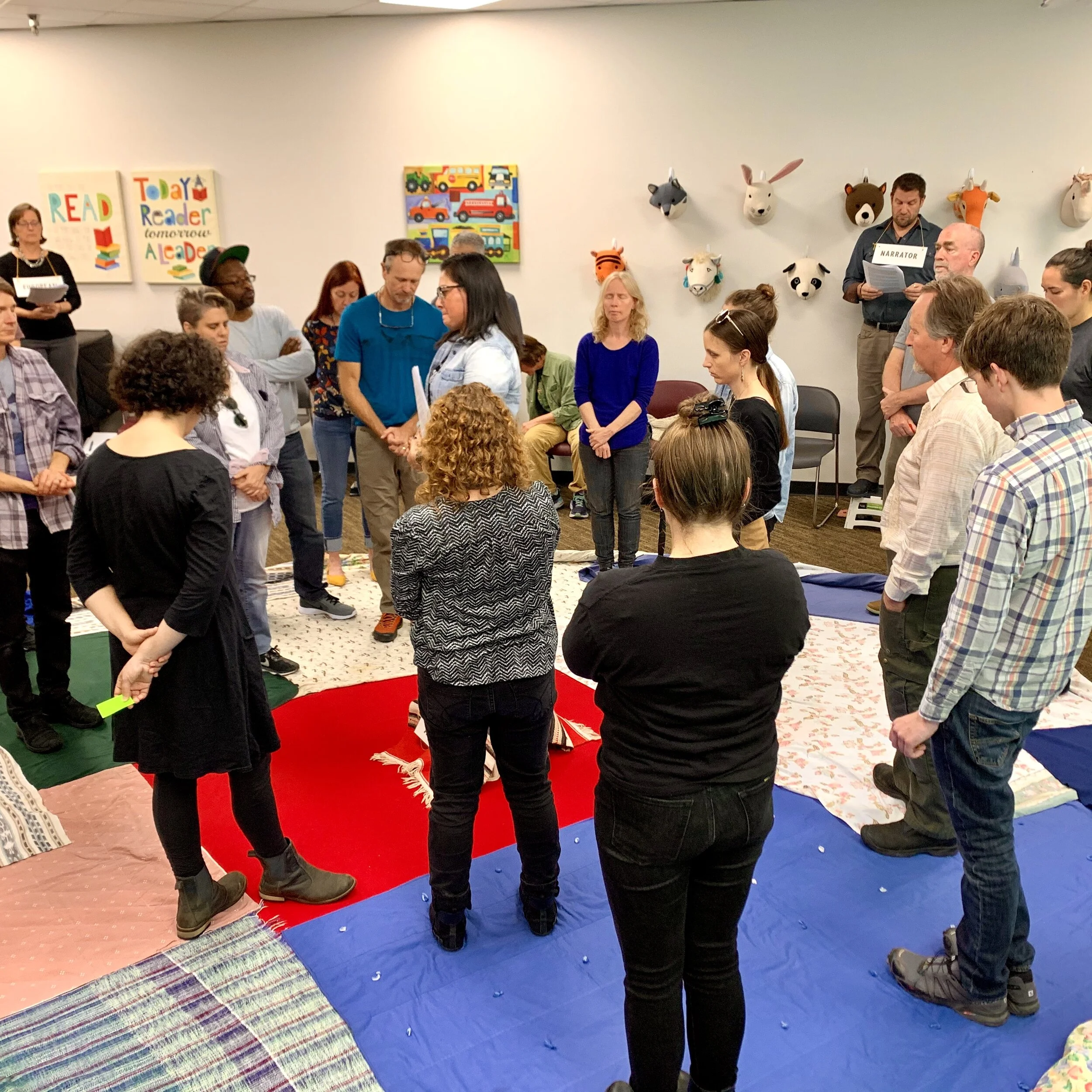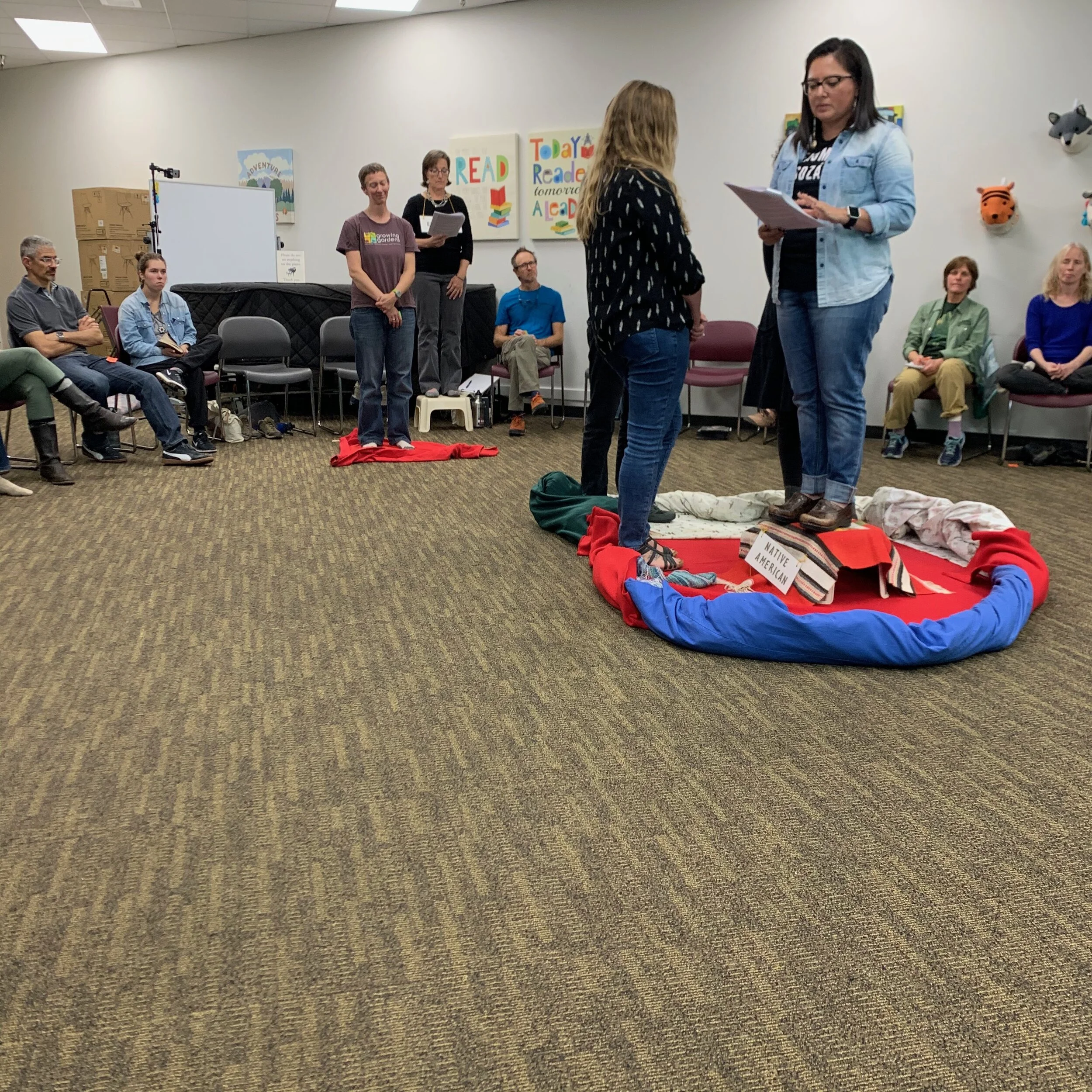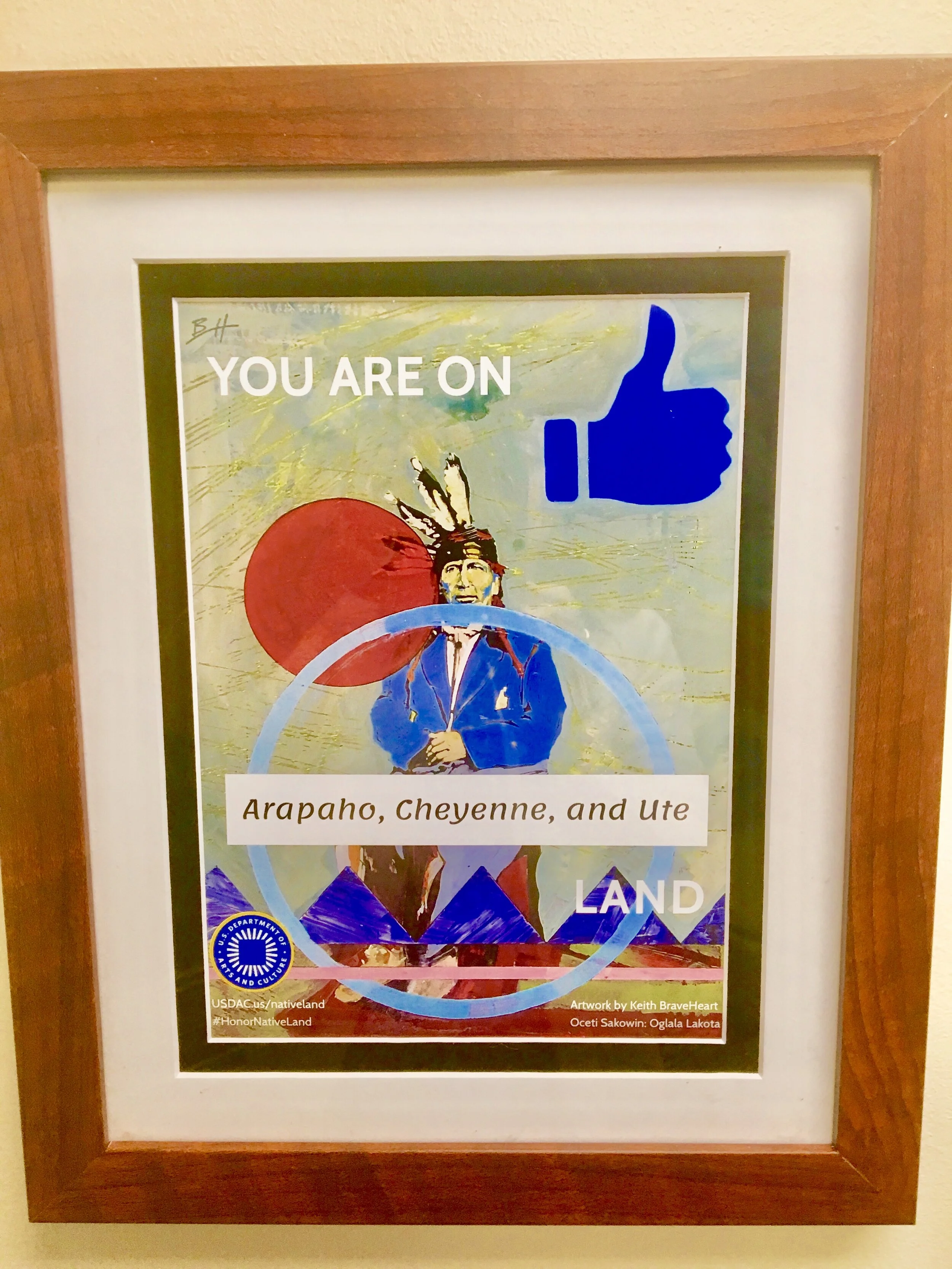acknowledging indigenous People & land
I live and work on the ON THE OCCUPIED HOMELANDS OF THE ARAPAHO, CHEYENNE, AND UTE
In November 2019 I organized and hosted a transformative community workshop at the Boulder Public Library called Roots of Injustice, Seeds of Change, created and facilitated by the Toward Right Relationship project.
As citizens of the United States we occupy many lands that are recognized by treaty as the territories of Indigenous Nations. Consciously or unconsciously, we currently benefit from the historic and ongoing injustices committed against the Native peoples of this very land we call home. Acknowledging the true history of our country, honoring the living land that we now inhabit, and supporting the Indigenous communities that share our land is an important mission that I hold close to my heart.
The Arapaho, the main tribe of the Boulder Valley region, call themselves Hinono'eino (“our people”) and refer to their tribe as Hinono'eiteen (Arapahoe Nation). Chief Left Hand (Nawath/Niwot) was the leader of the last Hinóno'éí band to spend their winters in the Boulder Valley, and one of the many Hinóno'éí people who were massacred by the US Cavalry at Sand Creek, Colorado, in 1864. The survivors were forced out of Colorado to reservations in Wyoming and Oklahoma, where most Hinóno'éí live today. While the Hinóno'éí and Cheyenne tribal headquarters are now located in Oklahoma, these people continue to relate to Boulder, Colorado as their homeland, and the local organization Right Relationship Boulder now welcomes the Hinóno'éí (Arapaho) people back to Boulder every year on Indigenous Peoples Day for gathering, celebration, and sharing!
I find it important to remember that Native people of many Indigenous nations live here in Boulder, and around the United States, today! Native cultures are not simply something of the past! Along those lines, the Toward Right Relationship Project offers various amazingly powerful workshops across the United States, both in person and online, in response to calls from Indigenous leaders at the United Nations and the World Council of Churches. Their goal is to raise the level of knowledge and concern about the historic and ongoing impacts of more than 500 years of genocide, colonization, and forced assimilation of Native peoples, recognize those impacts in ourselves and our institutions, and explore how we can all begin to take actions toward “right relationship."
Below are some photos of a community-wide workshop that I organized and hosted at the Boulder Public Library in 2019, facilitated by Jerilyn DeCoteau, Turtle Mountain Chippewa, an attorney, educator, and advocate for Native peoples’ rights, and Elicia Goodsoldier, Dine and Spirit Lake/Dakota, professional counselor and Native American rights activist. As an ongoing process I have hung a framed #HonorNativeLand poster in the lobby of the Boulder Healing Hub, and taken the formal Honor Native Land Pledge to open all public events and gatherings with a statement acknowledging the traditional Native lands on which we stand, coupled with ongoing authentic relationships and sustained commitment to promoting Indigenous connection and awareness.
If you would like to learn more about the process of acknowledging Native Land, check out this guide from the Native Governance Center, as well as these resources from the U.S. Department of Arts & Culture.



